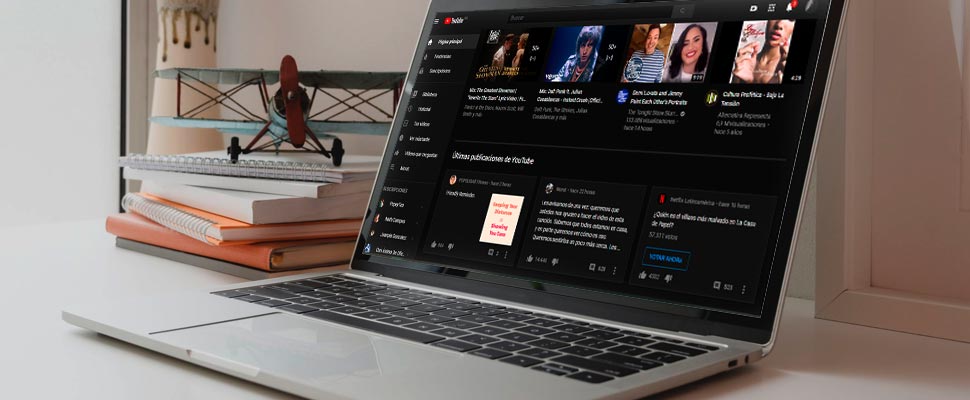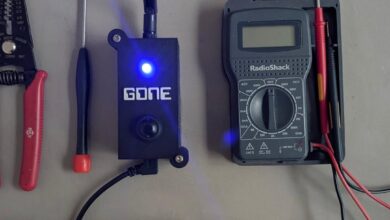Dark mode on screens: its advantages and disadvantages
More and more applications are doing dark mode on their interfaces, but how beneficial is it really?

Several applications have decided to create and adapt dark mode for their users. / Photo: Pexels – Lisa Fotios
LatinamericanPost| Juan Manuel Bacallado
Listen to this article
Leer en español: El modo oscuro en las pantallas: Sus ventajas y desventajas
Dark mode is becoming more and more trending in the wide world of applications, mainly for smartphones, in this way, it has already been included in important apps such as Instagram, Twitter and more recently in WhatsApp and Facebook, and although it is not new, the main smartphone manufacturers have also added it in their toolbar, in fact, Apple incorporated it in the new iOS 13, being one of the last companies to do so.
Facebook ya permite activar el nuevo diseño con modo oscuro https://t.co/FXicbJHi7L pic.twitter.com/Uwfw2slbgk
— Sepharad (@sepharad_) March 23, 2020
And yes, dark mode can be beneficial, mainly in two ways:
Battery
For phones with OLED technology screens, night mode is an even greater advantage, this is because this type of screen has pixels that work independently, turning off to generate a better tone of black, and thus, with fewer pixels on, lower battery drain. According to Xataka, Google carried out tests using YouTube with night mode, achieving an improvement of between 14% and 60% depending on the brightness of the screen.
It may interest you: OLED, AMOLED and LCD screens: which one is better?
In the case of Apple, a YouTube channel specialized in mobile technology carried out a test with the iPhone XS Max running with iOS 13, using the messaging application, Twitter, YouTube and Google Maps, the result showed 30% more duration in the battery when dark mode is activated.
Activar el modo oscuro en un teléfono AMOLED puede ahorrar hasta un 60% de batería, según Google https://t.co/lrngawpNII pic.twitter.com/AiQTv5nEhv
— Gizmodo en Español (@GizmodoES) November 9, 2018
Visual comfort
As is well known, the dark mode consists of establishing a generally black background, although in some cases it only has a dark blue tone, such as WhatsApp, the truth is that this change from white to black causes a reduction in ocular effort, according to the American Academy of Ophthalmology (AAO). This benefit is greater in night hours or dark environments since the decrease of the white flashes of the entire screen allows the eyes to adapt better and faster to the surrounding space, avoiding a contrast between the illumination of the screen and reducing the feeling of eye fatigue.
Blue light
Among the advantages offered by dark mode is the reduction of blue light, a type of lighting present on all screens despite not being visible to the naked eye, according to the AAO it affects the circadian cycle, altering the quality of sleep. In addition, there are other studies that point to blue light as the cause of macular degeneration when the eye is subjected to a long time in front of the screen, this leads to vision problems according to All About Vision.
#android #fb https://t.co/pRAqHns4oh Cómo usar el filtro de luz azul en los Samsung Galaxy S8 y S8+ https://t.co/qnEnuWWB3D pic.twitter.com/kOqPPDPLDN
— Liberaris (@liberaris) May 15, 2017
Another way to reduce exposure to artificial blue light is through blue light filters, which come installed on some smartphones and can also be downloaded in the app store. However, there are no studies that verify whether this type of filter avoids the effects of blue light, according to Thirteen Bits. In fact, phone manufacturers are working to decrease the emission of blue light on their screens more and more, obtaining better and better results.
A disadvantage of dark mode
Unfortunately dark mode is "opposing" human nature that has developed for years of evolution: humans are used to reading dark letters on light backgrounds, not only on screens but on anything. For this reason, Xataka says that studies allege how dark mode affects readability, since light letters on dark backgrounds alter the visual focus and therefore reading comprehension is lesser, this consequence is more frequent when it comes to cell phones or screens with very small letters.
Also read: 5 smartphones with the best cameras
Therefore, the dark mode option has its advantages and disadvantages that can affect each person differently. It will depend on the personal experience of each person when using it. Now, what the studies do agree on, is that you should avoid using screens at least one or two hours before sleeping to effectively fall asleep, according to AAO.





